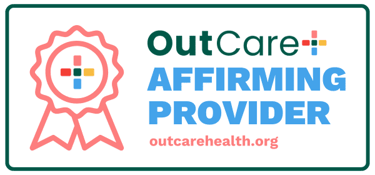This article is part of the Men’s Therapy series on masculinity and mental health.
Am I Lonely or Just Isolated? Rethinking Disconnection in Men
Many men struggle with loneliness but don’t name it. Learn how therapy helps men in SF reconnect—without shame or self-blame.
MEN'S THERAPY


You’re not depressed exactly. You show up to work, answer texts, maybe even go to the gym. But underneath it all is a sense of blankness. A low-level ache. Something missing. Something unfelt. Maybe it’s been so long since you felt deeply connected that you’re not even sure what to call this feeling.
Men don’t often say, "I’m lonely." But loneliness has a thousand disguises:
Working late to avoid going home
Scrolling through apps just to feel a pulse of attention
Feeling more comfortable talking about ideas than emotions
A constant sense of being on the outside of things
If you’ve felt this way, you’re not broken. You might just be lonely—and deeply isolated in a culture that discourages connection between men.
What’s the Difference Between Loneliness and Isolation?
Isolation is structural. You don’t have people around. You don’t have places to go where you feel known. In more recent public discussions, this phenomenon is often referred to as a "third place" - or really, a lack of a third place. A third place, coined by sociologist Ray Oldenburg, is generally a informal public gathering place that is happily anticipated and outside of work and home.
Loneliness is relational. You might have people around—but no one really knows you. Or you don’t feel safe showing them what matters most.
Here’s the kicker: many men are both. We live alone. We hustle. We keep it together. But we don’t always know how to reach for intimacy, especially if we were raised to equate vulnerability with weakness.
According to a 2023 report from nonprofit Equimundo, two-thirds of men ages 18–23 said: “No one really knows me.”
A 2021 survey from the Center on American Life found that fewer than half of all men felt satisfied with their friendships.
Pop Culture Reflection: IDLES and the Cry of Modern Masculinity
A recent video analysis of the band IDLES—a widely respected and culturally relevant post-punk band—explored how their music confronts modern masculinity and emotional repression head-on. In particular, the band’s raw, unapologetic vulnerability pushes against the cultural script that tells men to keep their inner lives buried.
The video describes how the idea that "masculinity is under attack" isn’t just a cultural narrative—it’s a generational echo, a recurring motif that ironically defines masculinity itself. One line from the analysis stands out: "Many men don’t feel known, not even by themselves." It’s a powerful mirror of the reality many men face.
By invoking IDLES—who blend rage, grief, tenderness, and critique—this cultural lens helps us understand loneliness not just as a private pain, but as a collective signal that something about how we’re told to be men just isn’t working.
How Masculinity Gets in the Way
Masculinity often rewards independence over interdependence, stoicism over expression, and performance over presence. When we internalize these values too rigidly (learn more in The Crisis that Never Ends article), it gets harder to:
Ask for help without shame
Maintain friendships through life transitions
Admit when we feel abandoned, left out, or forgotten
In therapy with men, I often see how much relief comes from simply being seen—without having to prove anything.
Signs You Might Be Experiencing Lonely Isolation
You feel emotionally flat or invisible—even around people
You avoid reaching out unless you have something "useful" to say
You second-guess whether friends or partners really like you (which can overlap with social anxiety. Here is how therapy can help)
You feel like your friendships are based on banter, not depth
You fantasize about leaving your current life for a “fresh start”
What Therapy Can Offer
Therapy won’t give you instant connection—but it gives you practice.
Naming: Learn to identify what you’re actually feeling and needing
Rehearsing: Practice expressing vulnerability in a safe space
Mapping: Understand what makes you pull away or shut down
Expanding: Build new models of connection rooted in honesty, not performance.
Over time, the men I work with begin to rebuild their relational muscles. They take more risks with friends. They soften with their partners. They start to believe they’re worthy of being known—without having to earn it first.
A Simple First Step Toward Connection
Sometimes, the hardest part is knowing where to begin.
Download the free checklist:
“Am I Lonely or Just Isolated?”
This one-page reflection tool will help you identify patterns of disconnection—whether you're physically isolated, emotionally lonely, or both. It's a starting point for clarity, not a diagnosis.
Want to go deeper? Therapy can help you understand what’s getting in the way and practice new ways of relating—no pressure, no performance.
You’re Not Meant to Do This Alone
Whether you’re surrounded by people or going it solo, you deserve connection that doesn’t feel performative or earned. See more posts on men’s mental health and masculinity.
If you’re ready to stop white-knuckling your way through life, I’d be honored to work with you.
Book a free consultation →
Sources:
Weiss, R.S. (1973). Loneliness: The Experience of Emotional and Social Isolation.
Cacioppo, J.T., & Patrick, W. (2008). Loneliness: Human Nature and the Need for Social Connection.
Mahalik, J.R. & Rochlen, A.B. (2006). Men’s social connectedness and psychological well-being. Psychology of Men & Masculinity.
hooks, bell. (2004). The Will to Change: Men, Masculinity, and Love.
Brown, B. (2012). Daring Greatly — for shame, vulnerability, and disconnection themes.Write your text here...





